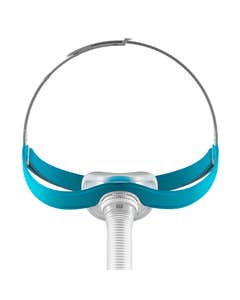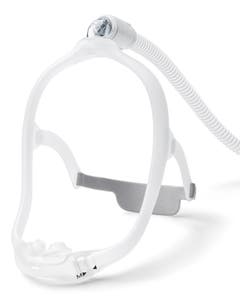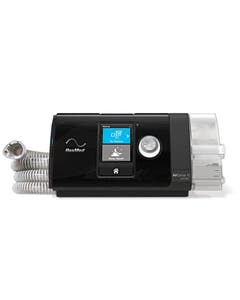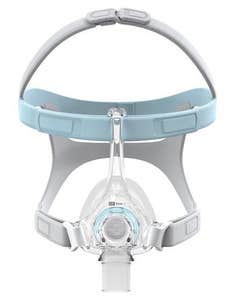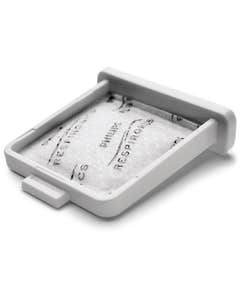Are Diet And Exercise Effective In Reducing Sleep Apnea?
One of the difficult aspects of being afflicted with sleep apnea is maintaining a healthy lifestyle while still dealing with the effects of the disorder. Multiple studies suggest that sleep apnea can increase your risk of developing various ailments including high blood pressure, diabetes, and heart disease, just to name a few. One way to lessen the severity of your sleep apnea symptoms while preventing the onset of any of these diseases would be to alter your eating habits. A study released by the European Respiratory Society, states that if you stick to a strict and healthy Mediterranean diet, symptoms from sleep apnea can improve.

What Diet is Best for Sleep Apnea Patients?
While eating a balanced diet is an essential part of staying healthy, the best diet for sleep apnea patients is one that is high in fiber and low in fat. This type of diet maintains a feeling of fullness after eating and helps prevent overeating. Sleep apnea patients tend to be overweight which contributes to their sleep disorder. Simple changes in diet can help with weight loss and better sleep. Foods that are high in fiber and low in fat that sleep apnea patients should eat include:- lean meats
- seafood
- beans
- eggs
- nuts/seeds
- steak
- pork/bacon
- sausage
- bananas
- heavy cream
Why Do You Need Sleep Apnea Exercises?
As with a healthy diet that promotes weight loss, sleep apnea exercises can profoundly reduce apnea events and in some cases eliminate them. What is important for those with obstructive sleep apnea (OSA) to remember is that for most, OSA is a lifelong challenge that requires consistent and customized treatment for each person. The major benefits of exercise for OSA patients include reducing the severity of the condition and daytime sleepiness, as well as increasing sleep efficiency and maximum oxygen consumption. Regular sleep apnea-specific exercises can help.Types of Exercises for Sleep Apnea
There are numerous exercises that can be incorporated into patients' daily routines to help with sleep apnea symptoms. However, it is important to consult with a doctor first. Cardio and stretching are great exercises to lessen sleep apnea symptoms, along with a combination of throat and tongue exercises that help strengthen and tone tongue and throat muscles to prevent airway collapse during a sleep apnea event.Cardio and Stretching
Walking is a great aerobic exercise, which is physical activity of low intensity. This type of exercise is good for your bone strength and overall health. Walking 30-40 minutes a few times a week may help patients with sleep apnea to overcome or lessen their symptoms. Be sure to stretch before and after every work out, as stretching prevents injuries and enables your muscles to work more efficiently and effectively.Throat Exercises for Sleep Apnea
Pronounce vowel sounds. Repeating vowel sounds helps tone throat muscles so they are not as relaxed when you sleep, which can mean less frequent apneas. Repeat the same sound 10 or 20 times in a row, and then change to a different vowel sound. Sing! Singing is actually a form of exercise that keeps your throat muscles tight and toned. Singing activates multiple muscles and is a good exercise to pronounce all types of sounds. Sing to your heart’s content and sleep better.Tongue Exercises for Sleep Apnea
Tongue Slide Place the tip of your tongue against the back of your top front teeth. Slowly slide your tongue backward with the tip moving along the roof of your mouth. Repeat 5-10 times.Tongue Stretch
Stick out your tongue as far as you can. Try to touch your chin with your tongue while looking at the ceiling. Hold for 10 – 15 seconds and increase the duration gradually. Repeat 5 times.Tongue Push Up
Stick your tongue upward against the roof of your mouth and press your entire tongue against it. Hold this position for 10 seconds. Repeat 5 times.Tongue Push Down
Put the tip of your tongue against your lower front teeth and then push the back of your tongue flat against the floor of your mouth. Hold this position for 10 seconds. Repeat 5 times.Effective Study on Exercise and Diet for Sleep Apnea
In order to compare the results of a Mediterranean diet to that of a generic diet, the researchers at the University of Crete in Greece asked 40 participants to follow strict dietary guidelines for 6 months (20 people followed a basic diet while the other 20 followed a Mediterranean diet). The participants were also asked to increase the daily amount of physical activity to a minimum of walking 30 minutes a day. Both groups also received CPAP therapy during the trial so that scientists could monitor their sleep progress. So what were the results? The people following the Mediterranean diet were known to have fewer disturbances throughout the night, particularly during REM sleep. Participants were also more likely to stick to their diet and workout routine which resulted in a greater loss of abdominal fat. This study is the first of its kind and there is no guarantee that everyone will have the same results, but if you are willing to try a new approach and want a more restful night’s sleep, this can certainly be a good starting point. Here’s the food breakdown of the diet:| Food groups | Prudent Diet | Mediterranean diet |
|---|---|---|
| Red meat (servings/wk) | 9 | 3 |
| Poultry (servings/wk) | 3 | 3 |
| Fish (servings/wk) | 1 | 3 (1 fatty fish) |
| Dairy products, low fat (servings/d) | 2 | 2 |
| Fruit (servings/d) | 1-2 | 4 |
| Vegetables (servings/d) | 1.5 | 5 |
| Legumes (servings/wk) | 1 | ≥3 |
| Potatoes (servings/wk) | ≥5 | ≥5 |
| Non-refined cereals (servings/d) | 2 | 6 |
| Red wine (glasses/d) | 0 | 1-2 |
| Daily use of olive oil | moderate | moderate |
One of the difficult aspects of being afflicted with sleep apnea is maintaining a healthy lifestyle while still dealing with the effects of the disorder. Multiple studies suggest that sleep apnea can increase your risk of developing various ailments including high blood pressure, diabetes, and heart disease, just to name a few. One way to lessen the severity of your sleep apnea symptoms while preventing the onset of any of these diseases would be to alter your eating habits. A study released by the European Respiratory Society, states that if you stick to a strict and healthy Mediterranean diet, symptoms from sleep apnea can improve.
How Important Are Diet, Exercise, And Sleep For Healthy Living?
Diet, exercise, and sleep are the main factors that contribute to a person's overall health. It is important to take these aspects of your life seriously to make sure your well-being is as best as it can be.
Diet
Eating a healthy, balanced diet is beneficial to the body and reduces the risk of getting various different health conditions. A good diet consists of enough nutrients, including calcium, magnesium, and vitamin A-E.
Exercise
Like diet, exercise can positively affect the body in many ways. Having a workout routine keeps a person accountable, reduces feelings of anxiety and depression, and can also improve sleep quality.
Sleep
Sleep allows a person's brain and body to both recover, restoring almost every tissue in the body. Without enough sleep each not, the body or brain will not be able to properly function.
What is the Best Diet for Sleep Apnea Patients?


While eating a balanced diet is an essential part of staying healthy, the best diet for sleep apnea patients is one that is high in fiber and low in fat. This type of diet maintains a feeling of fullness after eating and helps prevent overeating. Sleep apnea patients tend to be overweight which contributes to their sleep disorder. Simple changes in diet can help with weight loss and better sleep. Foods that are high in fiber and low in fat that sleep apnea patients should eat include:
- lean meats
- seafood
- beans
- eggs
- nuts/seeds
Some foods to avoid if you have sleep apnea that is high in saturated fats include:
- steak
- pork/bacon
- sausage
- bananas
- heavy cream
Why Do You Need Sleep Apnea Exercises?
As with a healthy diet that promotes weight loss, sleep apnea exercises can profoundly reduce apnea events and in some cases eliminate them. What is important for those with obstructive sleep apnea (OSA) to remember is that for most, OSA is a lifelong challenge that requires consistent and customized treatment for each person. Although CPAP machines are the best treatment for this sleep condition, there are other things that can improve symptoms as well, including exercise. The major benefits of exercise for OSA patients include reducing the severity of the condition and daytime sleepiness, as well as increasing sleep efficiency and maximum oxygen consumption. Regular sleep apnea-specific exercises can help.
Types of Exercises for Sleep Apnea
Numerous exercises can be incorporated into patients' daily routines to help with sleep apnea symptoms. However, it is important to consult with a doctor first. Cardio and stretching are great exercises to lessen sleep apnea symptoms, along with a combination of throat and tongue exercises that help strengthen and tone tongue and throat muscles to prevent airway collapse during sleep apnea.
Cardio and Stretching
Walking is a great aerobic exercise, which is a physical activity of low intensity. This type of exercise is good for your bone strength and overall health. Walking 30-40 minutes a few times a week may help patients with sleep apnea to overcome or lessen their symptoms. Be sure to stretch before and after every workout, as stretching prevents injuries and enables your muscles to work more efficiently and effectively.
Throat Exercises for Sleep Apnea
Pronounce vowel sounds. Repeating vowel sounds helps tone throat muscles so they are not as relaxed when you sleep, which can mean less frequent apneas. Repeat the same sound 10 or 20 times in a row, and then change to a different vowel sound. Sing! Singing is actually a form of exercise that keeps your throat muscles tight and toned. Singing activates multiple muscles and is a good exercise to pronounce all types of sounds. Sing to your heart’s content and sleep better.
Tongue Exercises for Sleep Apnea
Tongue Slide. Put the tip of your tongue to the back of your top front teeth. Then, slide your tongue backward with the tip moving along the roof of your mouth. Repeat this 5-10 times.
Tongue Stretch. Stick your tongue out downwards as far as possible. Stretch your tongue as close as you can to your chin while looking at the ceiling. Hold your tongue in this position for 10 – 15 seconds and increase the duration gradually. Repeat 5 times.
Tongue Push Up. Stick your tongue upward against the roof of your mouth and press your entire tongue against it. Hold this position for 10 seconds. Repeat 5 times.
Tongue Push Down. Put the tip of your tongue against your lower front teeth and then push the back of your tongue flat against the floor of your mouth. Hold this position for 10 seconds. Repeat 5 times.
Effective Study On Sleep Apnea Diet And Exercise
To compare the results of a Mediterranean diet to that of a generic diet, the researchers at the University of Crete in Greece asked 40 participants to follow strict dietary guidelines for 6 months (20 people followed a basic diet while the other 20 followed a Mediterranean diet). The participants were also asked to increase the daily amount of physical activity to a minimum of walking 30 minutes a day. Both groups also received CPAP therapy during the trial so that scientists could monitor their sleep progress. So what were the results? The people following the Mediterranean diet were known to have fewer disturbances throughout the night, particularly during REM sleep. Participants were also more likely to stick to their diet and workout routine which resulted in a greater loss of abdominal fat. This study is the first of its kind and there is no guarantee that everyone will have the same results, but if you are willing to try a new approach and want a more restful night’s sleep, this can certainly be a good starting point. Here’s the food breakdown of the diet:
| Food Groups | Prudent Diet | Mediterranean Diet |
| Poultry (servings/wk) | 3 | 3 |
| Red Meat (servings/wk) | 9 | 3 |
| Fish (servings/wk) | 1 | 3 (1 fatty fish) |
| Dairy Products, low fat (servings/d) | 2 | 2 |
| Fruit (servings/d) | 1-2 | 4 |
| Vegetables (servings/d) | 1.5 | 5 |
| Legumes (servings/wk) | 1 | 3+ |
| Potatoes (servings/wk) | 5+ | 5+ |
| Daily use of olive oil | Moderate | Moderate |
Conclusion
The CPAP Shop offers an array of CPAP products that help with sleep apnea. We offer CPAP machines, masks, and more supplies. If you have sleep apnea and are looking for new products, visit us online or call us at 866-414-9700 today!




